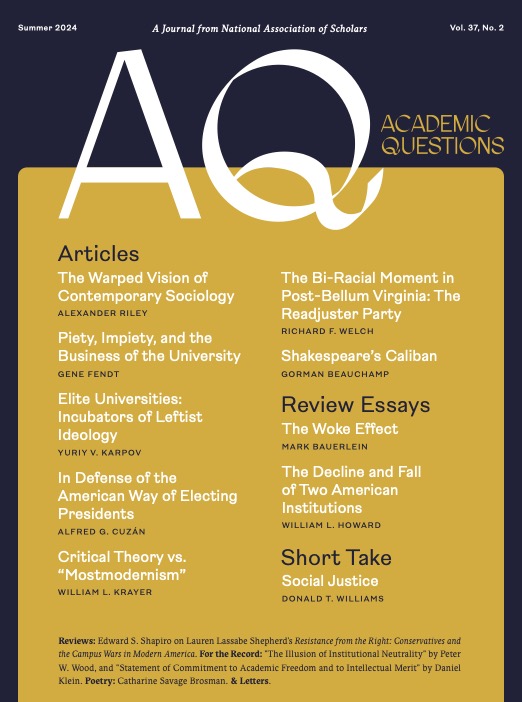Despite the fact that universities grew out of religious institutions in the Middle Ages and the first colleges in America were founded as religiously oriented institutions, it seems out of bounds these days to raise a question about the relation of the university and piety. Let me set a scene that portrays a version of the problem. In an ordinary undergraduate course in Philosophy of Religion the first book you might read is Plato’s Euthyphro. Euthyphro is Socrates’s interlocutor in the dialogue, and his name means something like “the good god’s judgement” or “good as god’s judgment,” which corresponds to one of his answers to Socrates: I am just doing what Zeus did.
Socrates meets Euthyphro in front of the court because Socrates is being brought up on charges of impiety and corrupting the youth by his impiety. Euthyphro is surprised and offended: He thinks Meletus, Socrates’s accuser, is “attacking the heart of the city” by indicting Socrates, who has a divine sign which warns him from saying or doing the wrong thing. So Euthyphro thinks Meletus is being impious by bringing Socrates up on such charges; Euthyphro himself is a prophet with the good god’s judgement, so he should be believed about these matters.
Socrates is not so sure. He praises Meletus, whose name means “care,” for caring rightly about the city. Meletus, according to Socrates, is the only public man who approaches matters rightly. In other words, first be concerned about the proper upbringing of the youth: that is most important, and if someone is corrupting them by teaching impiety he should be corrected by some serious fines and jail time or removed from the city by banishment or death. Socrates and Meletus agree that no serious city can allow the corruption of its youth via impious teachers. All three suppose that anyone who really cares for their own city would agree—impiety must be avoided.
In the course of the dialogue (and Socrates’s trial) we can see their principles at work:
Euthyphro thinks every murderer should be brought up on charges and not to do so just because he is a relative of yours is impious. He is at court to bring his father up on charges of killing a slave (who had killed another slave).
Socrates seems to agree with both of these principles, but he does ask whether the particular action of the person being charged really is an impious and chargeable act. Was the action of Euthyphro’s father really murder? Are his (Socrates’s) own acts really impious and corrupting? So, Plato means us to ask whether Euthyphro (who is charging his father with murder because it would be impious not to) or Meletus (charging Socrates with impiety) are saving the city or attacking it. Piety is, it seems, intrinsically related to the good of the city.
I bring this story up because all these characters, and one more, are still alive and kicking in the modern university (as well as our city)—among the faculty, and the students, and the “public men”—the administrators who, just as they did in Athens, run things.
Today we find numerous Euthyphros, people who think their judgment is as good as God’s judgement, and perhaps like Euthyphro will quote “what God did” to show you. One of their problems is that, like the Greeks, we live in a polytheistic society. Unlike Euthyphro, who believed there were many gods other than Zeus, most people in the university and our society only pick one whose ways define piety. However, we all live and study among people who have different gods. So we find Hindu Euthyphros, Muslim Euthyphros, Quaker Euthyphros, Catholic Euthyphros, Methodist Euthyphros. We don’t find many who confess to following the ancient gods like Plutus, the blind god of wealth, Nike, the goddess of victory, or Aphrodite and Dionysus, who I imagine don’t need any introduction, but I think these gods are still doing quite well and maybe it is time for their worshippers to come out of the closet. All these Euthyphros try to do what their god says, and try to do as he (or she) does.
There are Meletuses who think that people who teach their own version of piety are corrupting influences (Socrates is accused of teaching his own god). Meletus stands for the state ratified piety; that’s what he cares for. Most of these modern Meletuses are relativists, by which I mean they see all these different Euthyphros running around (which is in fact the case) and consider that each is, like Socrates, teaching his own god, and this is a corruption of the youth and the state for it will lead to infinite division about what the right principles are, as well as which particular acts fit or don’t fit those principles. Therefore, none of them should be allowed to teach the youth. It is impious for anyone to teach these impieties. I think there is something self-contradictory here and that every Meletus is really a Euthyphro, but leave that for another time.
There are also a few Socrateses running around the university who think that these questions about piety and justice and their relation need to be investigated first. They are the most important issue in a culture’s education of its youth.
And then there is a fourth group; they do not appear in the dialogues, and they undoubtedly have not appeared here for this discussion: Call them Non-Meletus. These don’t care about piety; they don’t think the question is important. That’s why they are not here; they have good reason not to be. They appear, in fact, to be the majority of the university. It would perhaps be politic to not rile them up. But Demos is not my god, so I will go on, come what may.
Despite their seeming disagreement, Socrates, Meletus, and Euthyphro all agree that the matter of piety is of the utmost importance for the community. They disagree, unanimously, with “non-Meletus.” Piety is not a matter about which anyone in the community should “not Care.” In fact, they all seem to agree that the most impious person of the four we see figured in this scene is the non-Meletus. So, a university which does not care about the question of piety would be the most impious or unholy community possible. Perhaps we should call it a community of demons, if, in fact, there could be any systematic relation among demons. But of course, even this community of demons has its piety: they all agree that piety is not worth considering. Ignore it. This might be the first principle of justice in such a city: whoever considers a question of piety, let him be anathema, and cast out from all connection with our community, which in this case is the university.
Now all three of the other characters are clearly seen, as in a mirror, to have an agreement concerning their first principle: the first issue for any community (city, state, university, family) is to get clear on what is pious or holy. It is not just one issue among many, like how should we arrange our plumbing, power supply, economy or medical system, but of the first importance. Anyone who does not care about this question we know to be impious—he, she, or it belongs to a different community than the one we Euthyphros, Meletuses and Socrateses share. That we agree on. Non-Meletus needs to be corrected or driven out from the community.
Well then, what is piety? Is all that is just pious? Or all of the pious just? Do we know what the just is?
If our community does not think these are the most important questions, we know what kind of community it is. And what kind it isn’t and doesn’t care to be.
Let’s look. Is the business of your university most importantly (or only) to get you a job? Is that what you think? If you (whether administrator, teacher, or student) think that is the most important business of the university, then what kind of community have you signed into and paid to become a member of? Does your university require investigation of such questions as Socrates is investigating with Euthyphro and Meletus? And by investigation I do not mean just finding out what people say; that is only a starting point; rather, investigating which of those could be true? Which can’t be? That’s what investigation means.
Does your university encourage the investigation of such questions? Is it perhaps a required part of general studies? Is it the main question of every first-year seminar? A university’s job is to institute the character of Socrates into the world of Meletuses, Euthyphros and Non-Meletuses.
So then, is your university pious? Or impious? It’s not an unfair question, though it might be one certain people don’t care to have asked or wish to answer.
Gene Fendt is Albertus Magnus Professor of Philosophy, University of Nebraska, Kearney; [email protected]. Fendt last appeared in AQ with “Cave Speak: The Cacophony About Gender” in the fall of 2022
Photo by jorisvo on Adobe Stock














